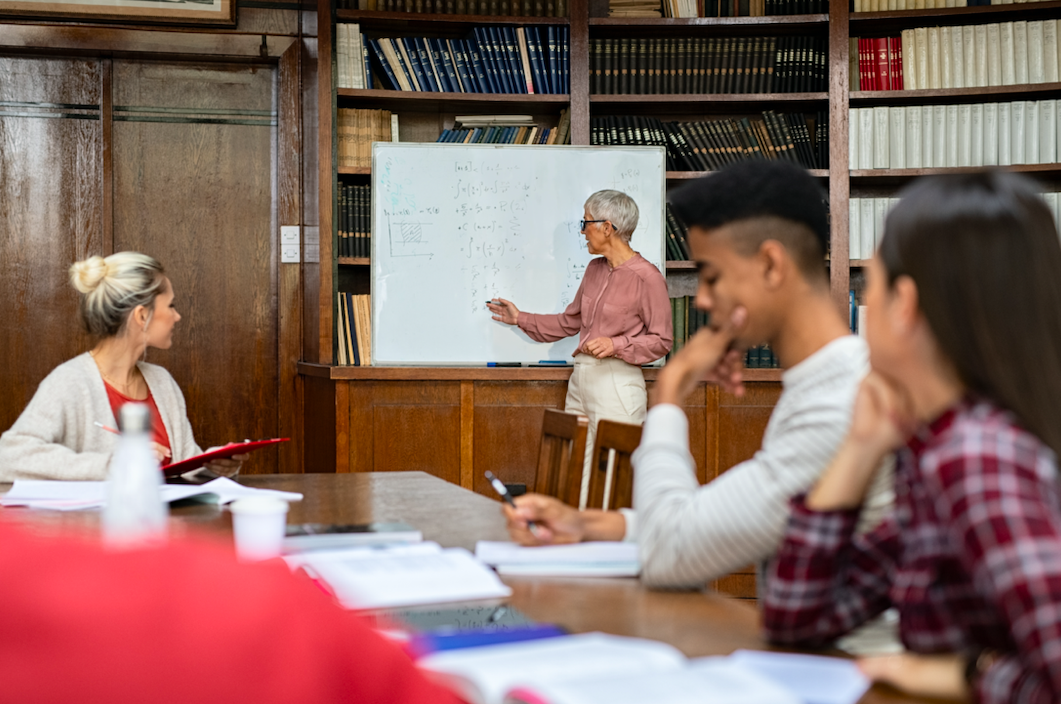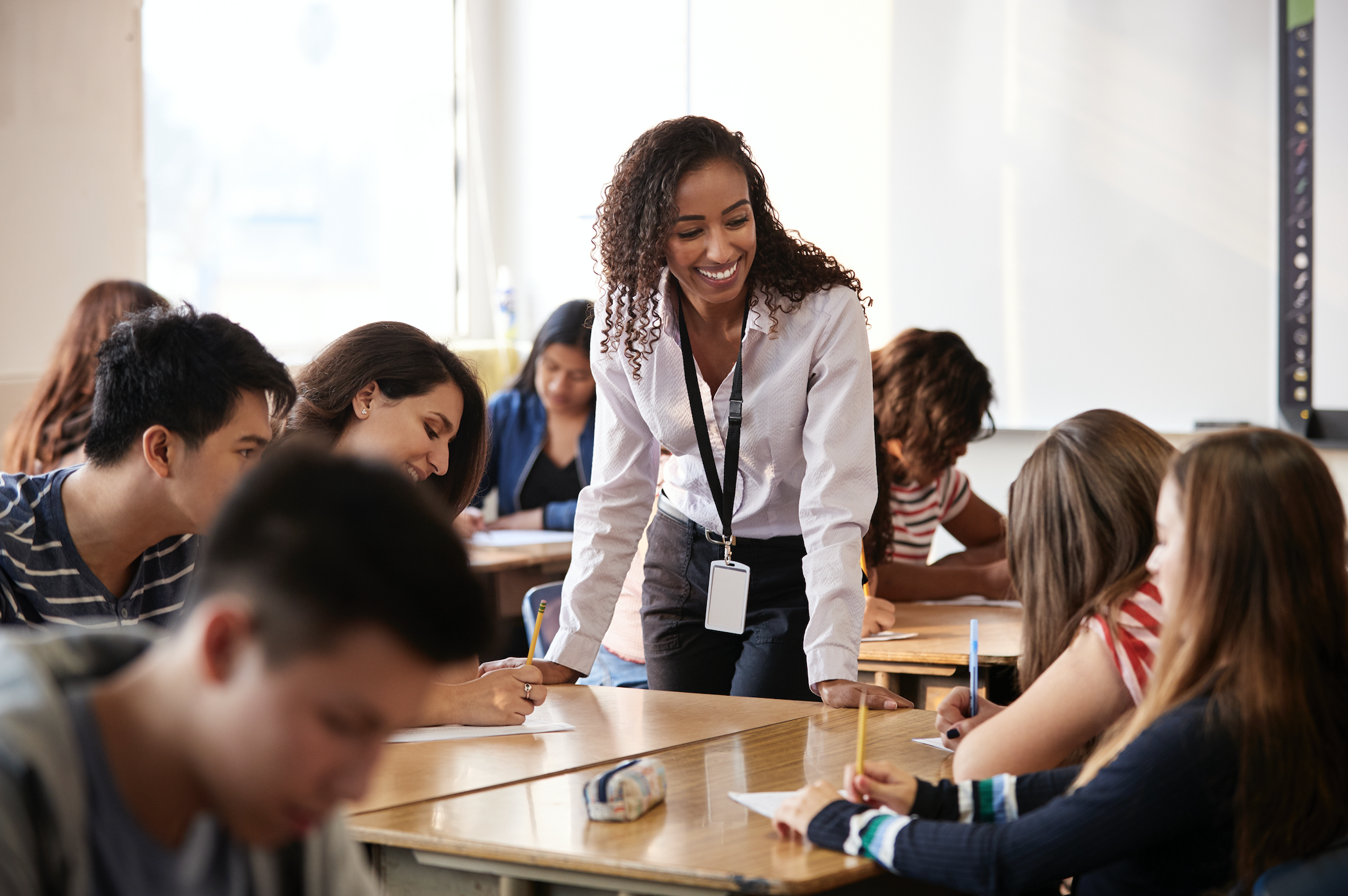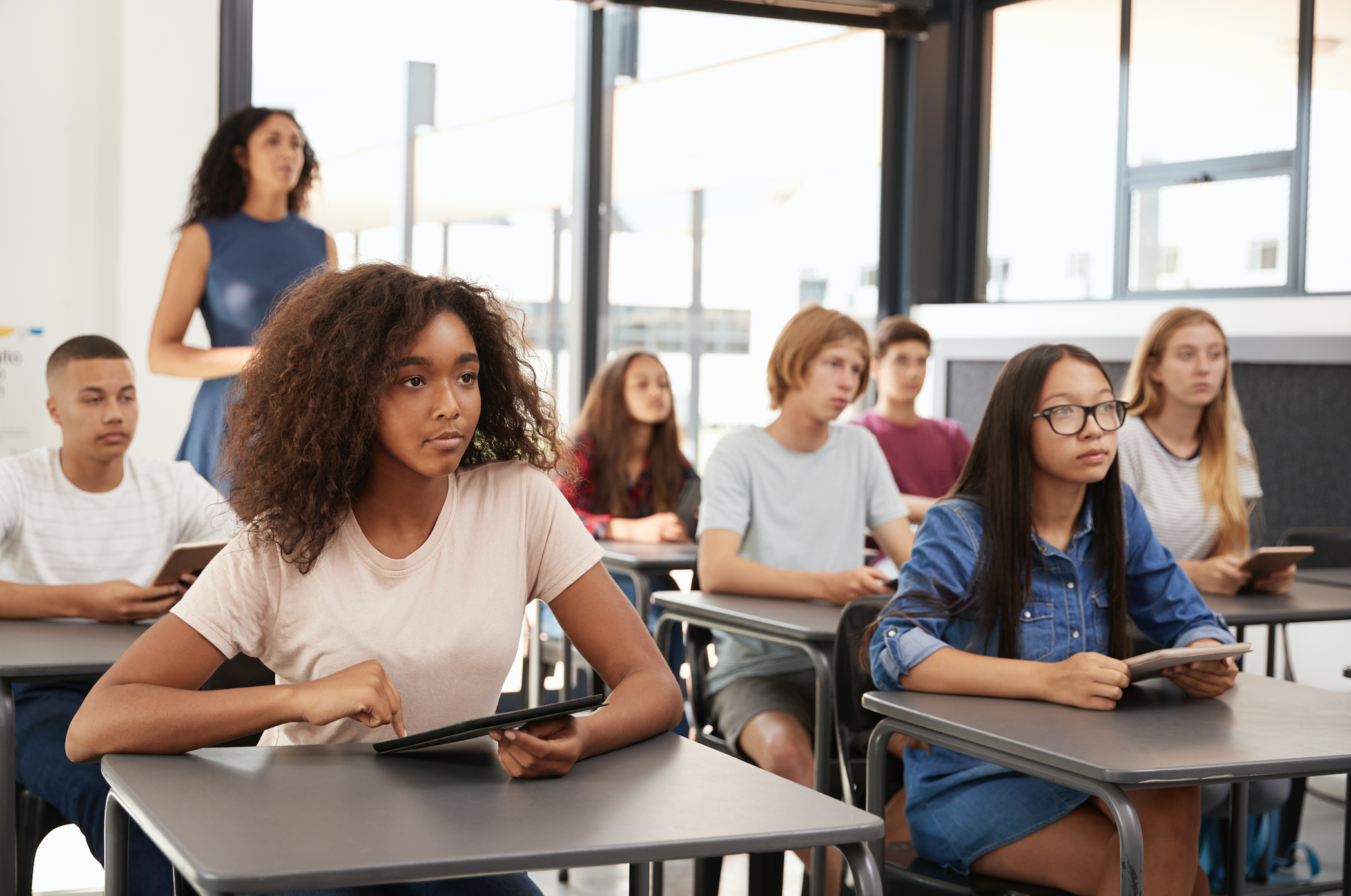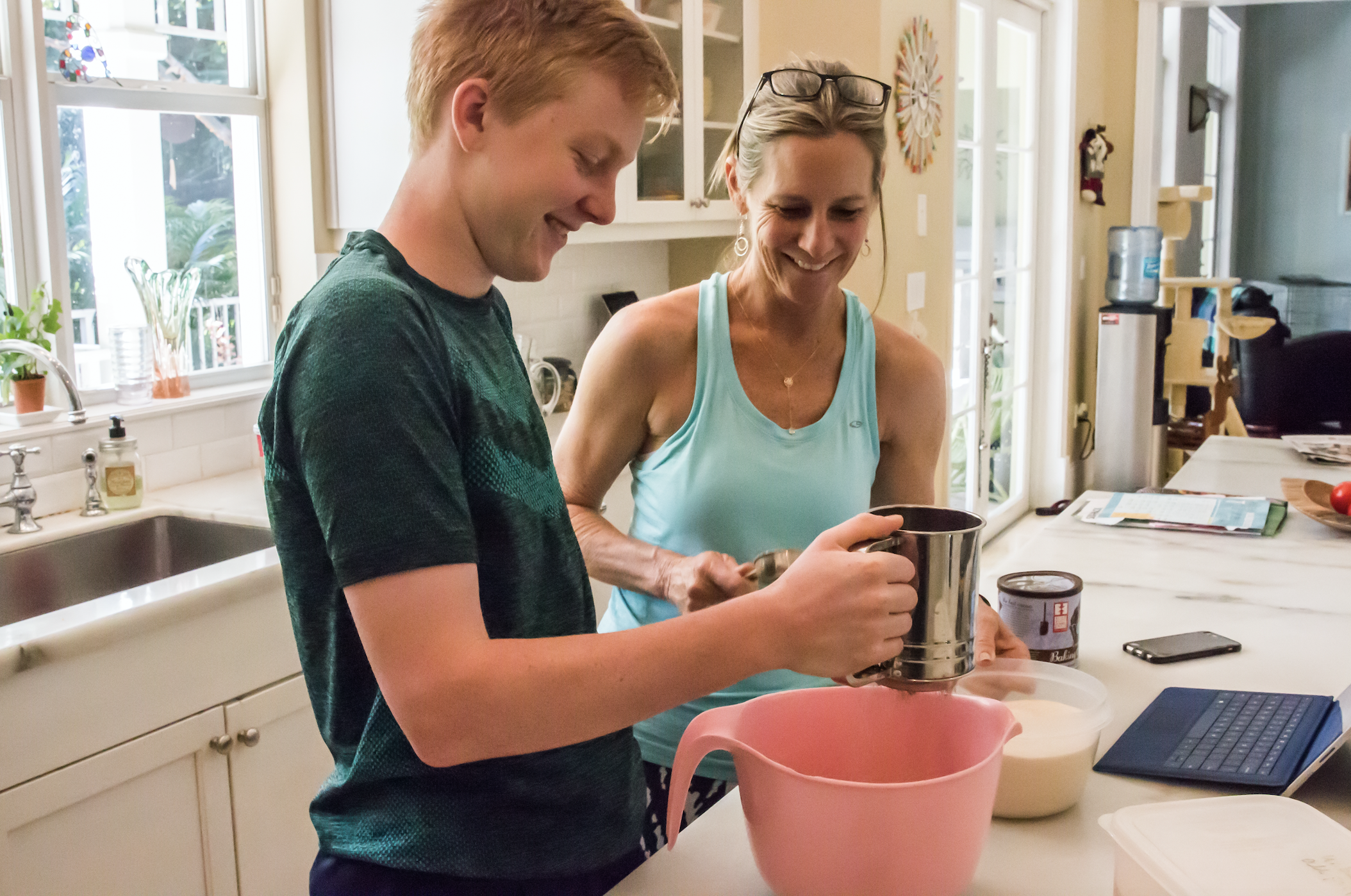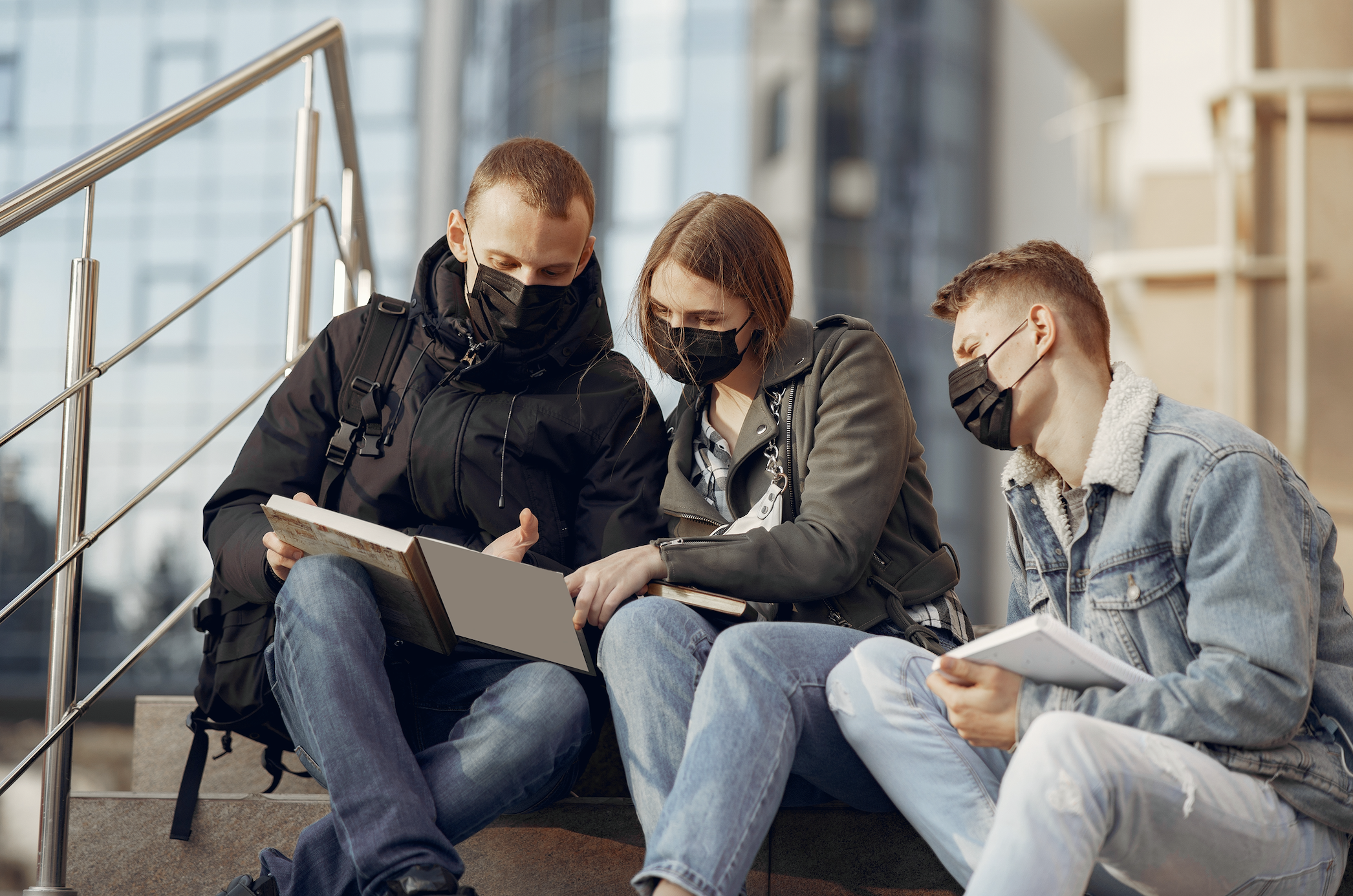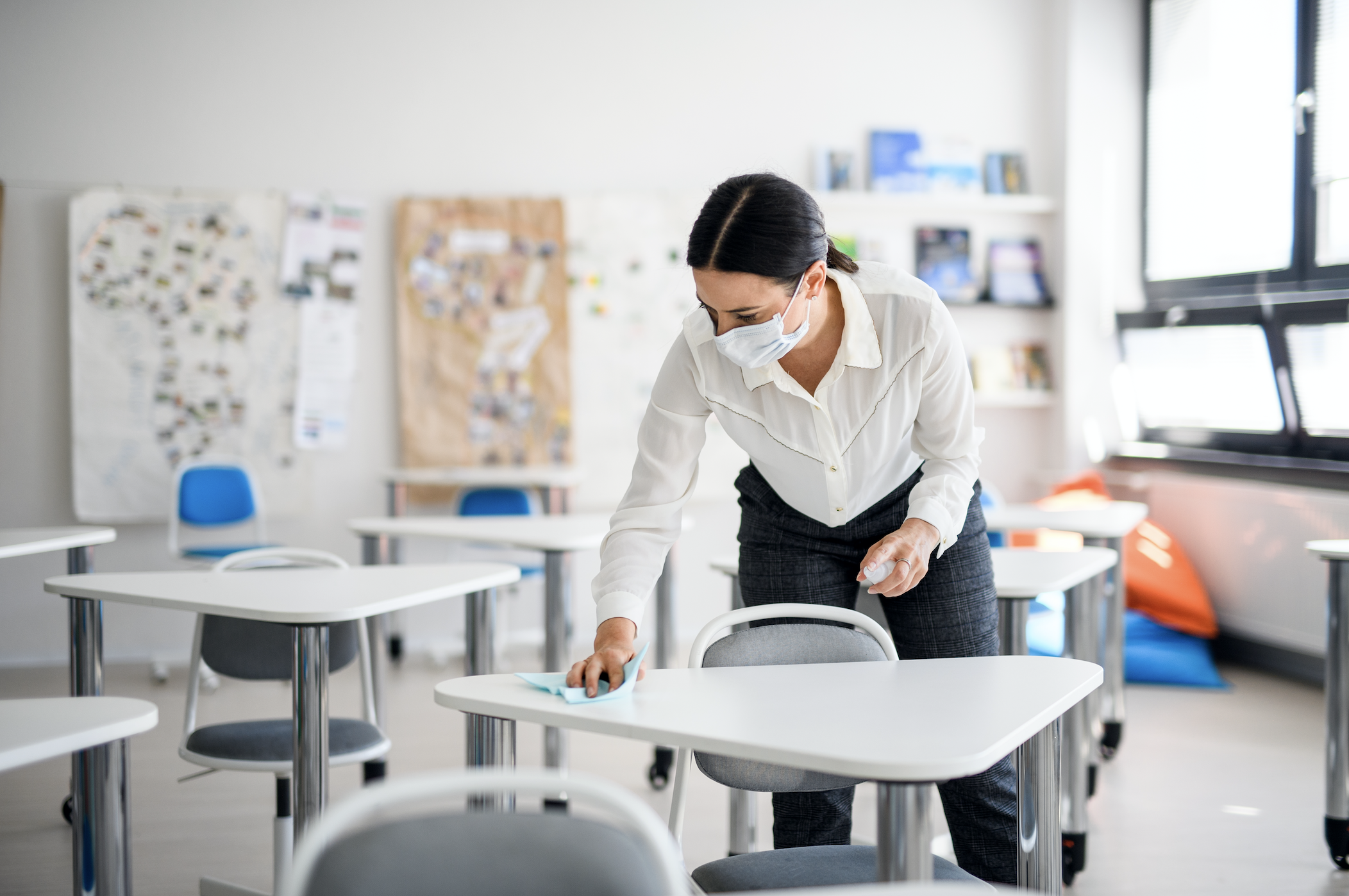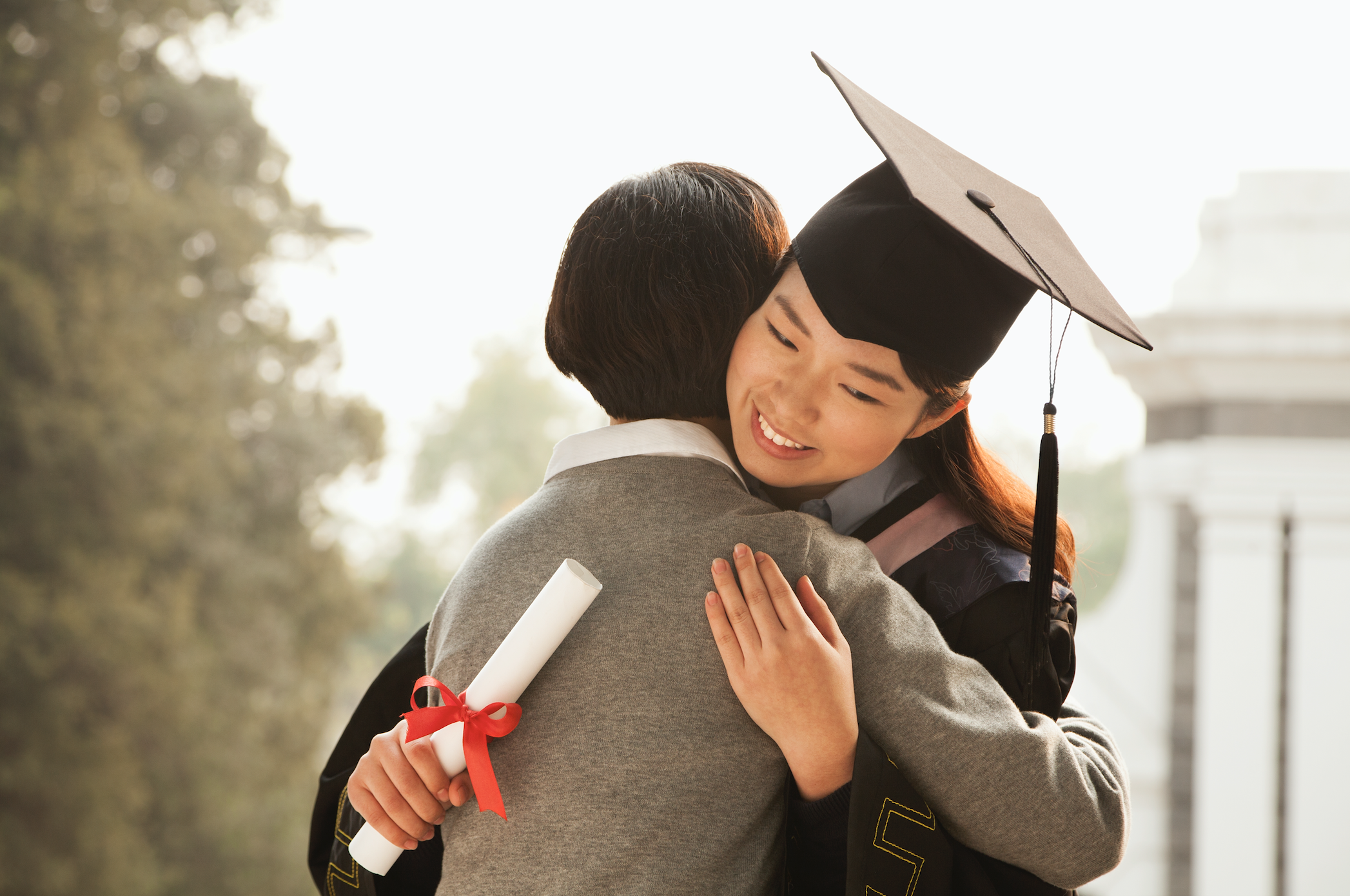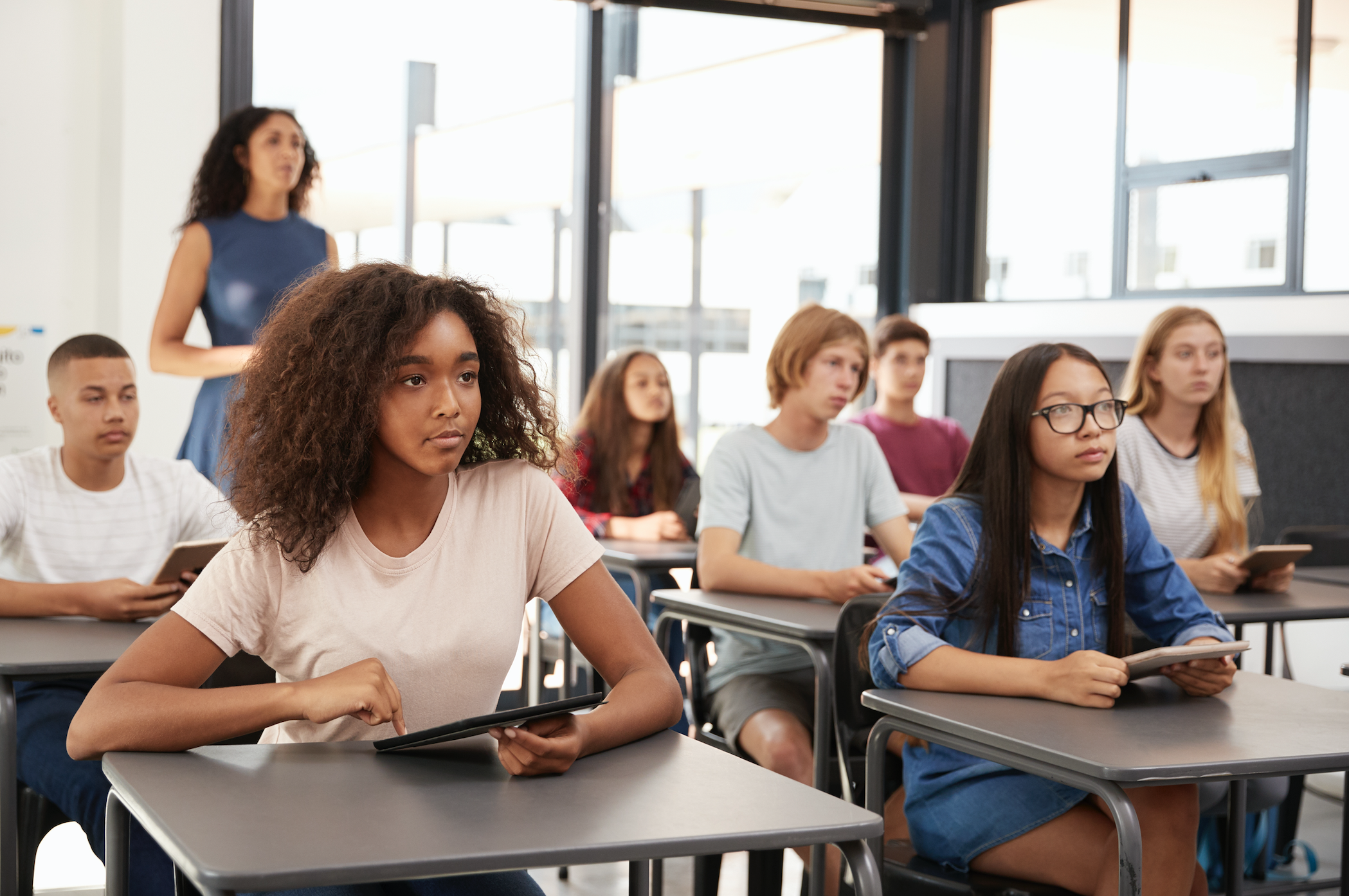Seven Ideas to Employ if Remote or Hybrid Learning Doesn’t Go Away
By: Tim Elmore Although millions of teachers, students, and parents would say the abrupt transition to remote learning a year ago was problematic, many are now preparing for more of it going into the 2021-22 school year. According to journalist Benjamin Herold, “Many teachers hate it. Millions of parents find it exhausting. A growing body of evidence suggests it has contributed
Three Helpful Secrets for Putting Empathy to Work
By: Tim Elmore One fascinating study on the subject of compassion was conducted at Princeton Seminary in 1973. Graduate students who studied theology were asked if they were entering the ministry because of innate reasons (i.e., they cared for people) or for circumstantial reasons (i.e., their father was a minister). After the survey, each respondent was told to offer a Bible
How To Help Your Virtual Students Stop “Fitting In” and Start “Belonging” in Your Classroom
By: Andrew McPeak You’ve probably had something like this happen in your classroom this year. You work hard to have fun with your students. You create interesting and fun assignments for them, and you think it’s going well. Then something happens. A student says something harsh like, “I hate this class,” or a parent contacts you to tell you that his
Four Ways to Expand Your Student’s Social Awareness
By: Tim Elmore Last fall, a group of high school freshmen sat in health class discussing personal hygiene. The subject was already deeply personal, but it became awkward when Erica failed to show social awareness. When Jacob was unable to hear a classmate’s comments, Erica reprimanded him, saying, “What are you, deaf? Pay attention!” Erica had no idea that Jacob was, indeed,
Overcoming the Most Common Mistake Educators Make Leading Generation Z
By: Tim Elmore In 2010, Christopher Havens was sure he’d hit rock bottom. That year, he was sentenced to 25 years in prison for murder. Soon after, a fight earned Havens time in a solitary confinement cell at the Washington State Penitentiary in Walla Walla, Washington. When he arrived at the facility, he assumed that fitting in was his best chance
How to Teach Your Students To Be Responsible Decision Makers
By: Tim Elmore I remember it like it was yesterday. I met with three high school students following a major brawl after a Friday night football game. A group of students from each high school began trash-talking each other, and the clash got heated. Within moments, words were exchanged for fists. The fight required security guards, teachers, and parents to break
Ban Facebook or Build Leaders: How Education Can Bridge the Gap Between Social Media & Social-Emotional Learning
By: Tim Elmore I never thought I’d see this day. The government of the Solomon Islands, a nation of hundreds of individual islands in the South Pacific, is planning to ban the entire Facebook platform, ABC Australia reports. Yep — this is no joke. Facebook will be banned from an entire country. Why? you ask. Incivility. Bad behavior online. Cyber-bullying. Defamation of character.
Who Wins When Social and Emotional Learning Meets Real Life?
By: Tim Elmore In times like these, we can all use some good news. This past year, 2020, was quite a year, complete with a pandemic, protests, political polarization, pay reductions, and panic attacks. A friend told me on November 1 (when we switched to standard time) that he didn’t set his clocks back. The last thing he needed, he said,
Six Warning Signs Your Students Are Struggling with the Pandemic
By: Tim Elmore I wonder if adults fully comprehend what’s going on inside the minds of kids today. Mental health issues were already mounting among those in Generation Z, but the Pandemic has taken its toll and left them in worse mental and emotional health than ever. In Japan, more people died from suicide than COVID-19 in 2020. Sometimes, we can overreact
Four Secrets to Virtually Approach Social and Emotional Learning
By: Tim Elmore Have you ever heard of BeauTubers? This is a term describing beauty-YouTubers. A beauty YouTuber, commonly referred to as a beauty vlogger, beauty guru, beauty influencer, or Beautuber, is a person who creates and posts videos to YouTube about cosmetics, fashion, hair-styling, nail art, and other beauty-related topics. As of 2016, there were more than 5.3 million beauty
Three Social and Emotional Skills to Prepare Gen Z for Their Careers
Laura is an HR executive who just finished her 14th interview in a single week with a prospective job candidate. We spoke by phone at the end of her week, and she told me she was exhausted. When I said I understood her natural weariness, she said it wasn't the volume of candidates that wore her out but rather their
The Importance of Developing Emotionally Intelligent Schools and Homes
I was stunned to hear what had happened at Stanley Middle School in Lafayette, California. Seventh-grader Merek Mastrov, who is 12 years old, missed a total of 90 minutes of Zoom classroom time. What step did the school take in response? Merek’s dad got a letter saying his son was truant and subject to arrest. Wait. Did they say arrest? Yes, according to
Four Reasons Why a Gap Year Might be the Best Way for Students to Build SEL Skills (Even During a Pandemic)
Today’s blog post is from Steve Moore. Steve is an author, speaker, and president of Growing Leaders. I came across an interesting letter written by a father on behalf of his discouraged son: Please forgive a father who is so bold as to turn to you…in the interest of his son. [He] is 22 years old… I can assure you that he
The Secret to Starting Real-Life Conversations with Your Students
I made a discovery recently. The schools that experience the toughest challenges with a remote learning model (or even a hybrid schedule) are the ones that continue to push for keeping academic scores high, at the expense of everything else. I asked a teacher recently how her remote learning experience was going. She said: “I’m exhausted. We’ve implemented the A/B model, and
The Pros & Cons of E-Learning to Build Social & Emotional Learning Skills
For many years now, researchers in educational fields have been trying to understand the influence of technology in the classroom. Is it helping? Is it hurting? Should we be using it? Of course, all of the answers to these questions may not be moot. After all, technology isn't IN the classroom today, technology IS the classroom. Just a couple of weeks
Why Many Students Still Aren’t Ready for Virtual Learning
I watched a revealing video made by Olivia, a freshman student from Toronto. It’s called “Numb,” and it’s just over three minutes long. It describes what life feels like for a kid who’s been forced to learn remotely. If you have three minutes, I encourage you to watch it here before reading my article below: Olivia (Liv) isn’t an unmotivated student.
The Secret to Leading Poorly Performing Students Well
If you’re like me, you’ve attended countless webinars on leading students during a pandemic. You’ve probably read so many articles on COVID-19 you feel like a cross between a therapist and a physician's assistant. You’ve likely been on video calls so much your eyes are blurry and you’ve contracted Irritable Zoom Syndrome. (Just a little humor there.) On top of that,
Helping Generation Z Use Self-Awareness to Create Self-Confidence
It didn't take long for people to recognize that Babe Ruth was a special athlete. The Sultan of Swat was a natural baseball player, better at hitting and pitching than most ballplayers in his time. In fact, at one point, a researcher from Columbia University coaxed him to undergo an experiment that would reveal what made him so different. Ruth
How Emotional Intelligence Increases Students’ Influence
Chuck was a bully on my high school campus. Back in the day, everyone in our class dreaded encountering him. On a good day, he was merely rude or offensive. On a bad day, he’d be downright abusive or violent. Chuck came from a troubled background but knowing that didn’t change the way peers felt about him. The entire tone
Educators: The Most Important Leadership Trait You Can Teach This Year
A young couple recently moved into a new house. While eating breakfast their first morning, the young woman saw her neighbor hanging her wash on the clothesline in her backyard. “That laundry looks dirty. She doesn't know how to wash correctly. Maybe she needs better detergent,” remarked the wife. Her husband looked on, but remained silent. Day in and day out,
Two Ideas to Enable Students to Engage and Retain a Virtual Lesson
Public education has been founded upon memorization and testing for over a century. While we all agree we must do more than drill our students to memorize curriculum, remembering information will always play a role in learning. Today, millions of teachers face an even more arduous task of doing all of this remotely. So, what can teachers do to help kids
Four Huge Mistakes Schools Have Made Over the Years
I sat in a well-lit room, full of colorful posters on the walls. Twelve people from four generations sat in a circle. Our goal was to discuss how our world had changed over the decades and if we felt those changes made us better or worse. You can imagine our discussion was as colorful as the posters on the walls. It
What Parents and Teachers Can Do That Google Cannot Do
Many parents fret that they’re not having the same conversations with their children that they did with their parents when they were kids. Teachers fret that engaging students in the classroom is tougher today because they compete against YouTube, Netflix, and Tik Tok. Coaches and youth workers fret that keeping a student athlete’s attention is tough because they’re up against Madden NFL
How this Pandemic Could Change School for the Better
Most of us have mourned what the COVID-19 quarantine has stolen from our teens. Less class time, more screen time, more boredom, and both students and teachers who are uncomfortable with the new normal. Many traditions were removed like sports games, recitals, school plays, proms, and marching bands on Friday nights. But I’d like to focus for a few minutes on
Why Social-Emotional Learning Should Be a Top Priority When Going Back to School
Tomas Macaluso is a principal at North Valleys High School in Reno, Nevada. He and his team have become passionate about establishing social and emotional learning into the 2,200 students who attend NVHS. While Tomas knows academics are important, he is committed to graduating students who are ready for real life. Many of the administrators and teachers we work with think
Two Important Decisions School Administrators Must Make This Fall
History is full of stories of leaders who each faced a crucial fork in the road and made a courageous decision. Want a few modern examples? Admiral Jim Stockdale chose to injure himself by cutting his face and butchering it with a stool so he could not be portrayed as an unharmed, healthy Prisoner Of War in Vietnam. Dr. Martin
Educators: Five Ideas to Overcoming Burnout Without Quitting
“COVID-19 has been a blessing and a curse,” Jared told me frankly. Jared is a high school principal who finished his 20th year as an administrator this past spring. He went on to say his teachers have enjoyed the change of pace that the quarantine offered everyone but that he’s also seen a rise in teacher burnout. An average of 16
Life Skills: The Class Some Students Are Asking for
After teaching the art of communication to some high school seniors, I turned them loose to apply what they’d learned. In groups of three, students stood up front to speak on a topic they felt passionate about. One group specifically caught my attention. The group members spoke about how much they wished for a class on life skills. Respectfully, they praised their
Seven Practical Strategies to Talk About Mental Health with Your Kids
Even though mental health issues are on the forefront of our minds today, the topic still carries a stigma for many. Talking about depression can be hard. Trina, a sophomore in college, recently said to me, “We look around us and everyone else seems happy, and we feel we must be the only ones who struggle with mental health problems.” So,
How Schools Can Practice Good Timing This Fall
Did you notice that people experienced an ebb and flow to their emotional state since we were all quarantined in March? I sure you did. At first, we were refreshed, by not having to drive to work or even get dressed up for Zoom meetings. Then, we declined a bit emotionally when we all got nervous about how long this
Survey Says: Teachers and Parents Will Handle the Fall Differently
Here are some icebreaker questions for you: Why have people today felt the need to: Hoard toilet paper at the grocery store? Keep their automobile gas tanks as full as possible? Purchase enough masks to keep their faces covered for a decade? The answer is the same for all the questions: uncertainty.
Helping High School Grads Make a Plan for Next Year
Melanie, an 18-year old high school student, told me recently, “I am a planner, but these days I can’t really plan.” Such is the world for high school upperclassmen, especially seniors. As we leave behind the month of May, the time when schools typically host graduation ceremonies, students either experienced a virtual ceremony or they are having to wait until August.
How to Help a Student Who Just Lost their Senior Year
Members of our team at Growing Leaders went and asked students how they’re handling the quarantine. One group of high school seniors offered the most telling insights on their final year of school: “It’s definitely not how I’ve pictured it all these years. I’m missing my senior track season, probably prom, maybe graduation, and the last couple weeks, I’ve missed school.
Six Ideas for Utilizing Technology to Teach
When I recently spoke to a group of eight students ages 17 to 22, I asked them what the biggest surprise was that they received since returning home to finish the semester online. I got my own surprise from most of them. Their top answer? How little their teacher knew about online learning. Apparently, many faculty members struggled to get up to
How to Embed Social and Emotional Learning During This Critical Time
A teacher called me a few weeks ago to talk about how to manage this stressful time. She was teaching her students online for the first time and attempting to manage her own children who were home all day. It’s quite a workload. When I suggested she find ways to embed social and emotional learning into her virtual classroom time—she hesitated.
What Parents May Learn from Teaching Their Own Kids
One of the many viral Facebook posts spreading around the country is a note an eight-year-old boy named Ben wrote about how things were going at home now that his mom has assumed the task of being his teacher during this period of social distancing. To sum it up, Ben’s not so sure his mother is cut out for home-schooling. Young
The Six P’s of an Amazing School Culture
I just finished reviewing my notes on colleges and secondary schools I’ve observed since 2005. The schools are located in Singapore, Canada, England, Germany, Egypt, India, Brazil, Mexico, and the United States. I’ve listed below the “best practices” in those schools. Obviously, a key requirement when applying best practices to organizations or schools is the ability to balance the unique
The Power of “Good” Referrals with Students
I love the story of the 7-year old girl who grabbed her baseball bat, her mitt and a ball and asked her dad if they could go outside and play some baseball. She then followed her request with some clear instructions for him: “I’ll hit the ball, and you say, ‘good job.’” It has been said, “Encouragement is the oxygen of
New Study: Students Who Can Manage Emotions Do Better Academically and In Life
It was a tense moment in the classroom, as two students saw each other’s grades after a mid-term exam. Lamar and Jason had both studied hard, so it was crushing for Lamar to see that he’d gotten 78 percent on his test, and Jason had scored 93 percent. Jason tried to lighten up the tension a bit, by saying, “Well, at
What We Can Learn from the Summerhill School Experiment
Back in 1921, a radical experiment was launched in the United Kingdom. It was a school, if you can call it that, that was so unorthodox, it instantly created debate and controversy. It was called the Summerhill School experiment. Began by Scottish educator, Alexander Sutherland Neill, this school empowers students to choose what they’d like to learn, to experiment, explore and
Teaching Students Subjects That Don’t Come Natural for Them
One of the most frustrating experiences for a teacher or a parent is trying to teach something to a young person—something we know will help them succeed later—and finding them unresponsive. It matters not what the subject is: Math Reading Science Changing a tire Work ethic Writing and communication I spoke to a history teacher recently who said she was “at
Seven Ideas to Help Student Leaders with Cognitive Bias
Some of you may be leaders of the emerging generation. You lead schools, businesses, sports teams and families. Many of you who work with student-leaders want to help them navigate the privileges and responsibilities of their position. I recently sat in on a Student Government Association meeting on a college campus. It was immediately clear these were intelligent and active university
How Involved Should Parents Be in Their Child’s Education?
During the past month, I found myself speaking to more than 6,500 parents in various locations across the U.S. I never have a more engaged audience than when I’m interacting with moms and dads. That month, I found the most popular question was—how do I support my child in school? Behind that question are looming thoughts like: My daughter is so stressed
Why Tough Grading Teachers Produce Better Learners in the End
This may not surprise you, but a new study found that students perform better on standardized tests each year when their teachers are tough graders—and argues that when students have the mindset that says “everybody gets a gold star,” it does “more damage than good." The report, published by the Thomas B. Fordham Institute, found this effect holds true for students across





